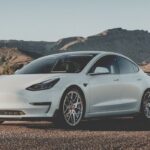Apple car with new battery technology
The autonomous driving car of Apple (Apple car) will have a new battery technology that will increase the range of the car along with substantial reduction on the cost of the battery.
The smartphone and laptop manufacturing giant Apple has decided to venture into the self-driving car industry. As per the Reuters report, the technology mogul is aiming its introduction by 2024.
The report suggests that it is most likely the passenger car of the enterprise will be driven by its own battery technology. Apple is working on their auto project called Project Titan. Apple has been haphazardly working on the project since 2014.
After initiating to design its own automobile several years ago, the technology giant Apple retreat itself back and moved emphasis on software and re-evaluated its goals. Apple veteran Doug Field, who worked at Tesla, returned to oversee the project in 2018. People who knows about ‘Project Titan’ told that the company has advanced enough and now is planning to build a car for buyers.

The autonomous driving car of Apple will have a new battery technology that will increase the range of the car along with substantial reduction on the cost of the battery. People aware of the development said that the company is intending to use a ‘mono cell’ layout design. The particular design will assist in packing more active material inside a battery that in turn will provide an extended range.
Samsung is planning to launch Galaxy A22 5G smartphone in 2021.
Stating the battery technology as ‘next level,’ sources who operated on the project said that it would just like holding an iPhone experience for the first time. As doing all this requires lot of financial support, they said that there’s only Apple capable of doing it.
The Apple car is anticipated to have several LIDAR sensors, which are most likely to be supplied by outside partners, to assist the car scan different distances. Sources also revealed that some of them could be inside developed LIDAR. However, Apple has not commented on its plans.
For similar articles, please do visit www.technologyinsight.tech







